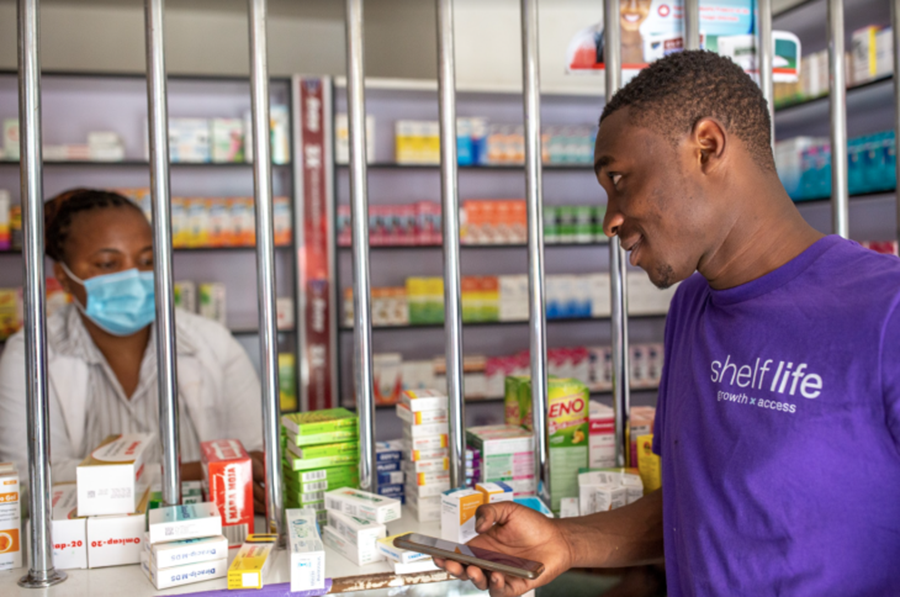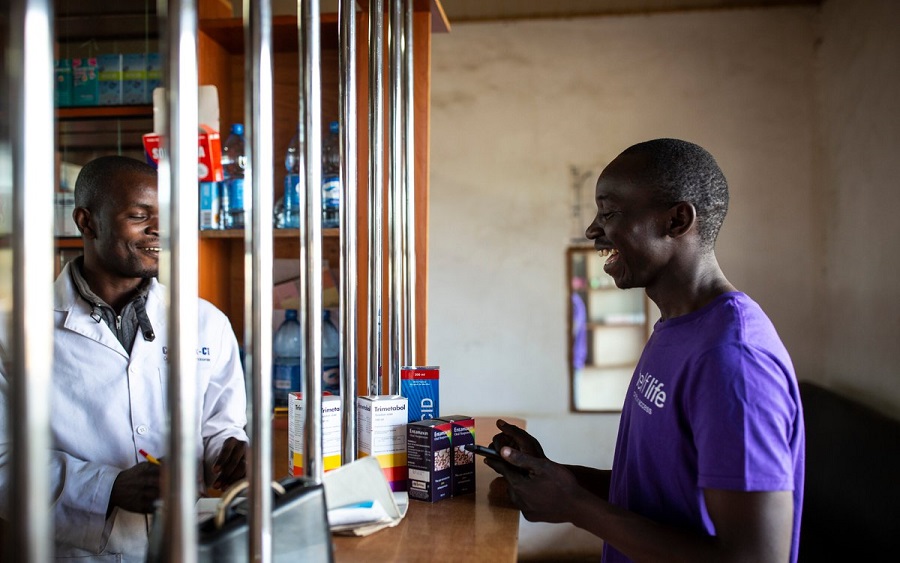Africa’s healthcare sector has been attracting a significant amount of capital inflows and investments in recent years with technology viewed as the main driver
In this interview with Nairametrics, Justin Lorenzon provides an insight into the growth of Africa’s health tech space. Lorenzo points out that despite the impressive growth being recorded in Nigeria and Africa at large, there’s still a lot of room for improvement.
He opines that the current solutions are only targeting a very small percentage of the population.
Justin Lorenzon, is the Chief Technical Officer and co-founder of Field Intelligence. Field Intelligence has been a pioneer in pharmaceutical supply chain solutions in Africa.
Here are excerpts of the interview:
How would you assess the healthtech space in Nigeria?
The Nigerian healthtech space has grown significantly in recent years with the help of both investment and innovation. The Covid-19 pandemic led to accelerated development and deployment of solutions in telemedicine, virtual primary care and last-mile delivery boosting access to quality healthcare. Additionally, healthtech in Africa is expected to reach a revenue growth of 23.08% and a market value of over US$11 billion by 2025, serving 1.4 billion people, so even small improvements in healthcare delivery stand to have a huge impact.
There’s still a lot of room for growth as a lot of the current solutions are only targeting a very small percentage of the population. So there is a lot of room to grow into and a lot of people to serve. The next couple of years will be super interesting for the space.
At Field, we use machine learning and live data to solve issues relating to the fragmentation of the supply chain, frequently leading to stock out, wastage and visibility. This heavily impacts the pharmacies that deliver frontline primary care to 80% of Africans as well as health institutions and large scale health programs. To date, we have served over 1.4 million patients and tracked over 135 million pharmaceutical interventions in Kenya and Nigeria.
What are findings related to supplying pharmaceuticals and immunizations in Nigeria?
Field Intelligence was launched because we identified, especially after the Ebola crisis, that surviving or recovering from shocks of this scale, larger and smaller, is dependent on the strength of routine health systems – and those systems critically rely on their supply chains. Unfortunately most of which are extremely fragmented, highlighting the issues that impact the healthcare system in Africa are overwhelmingly operational not medical.
Supply chain tools need to be fit for the purpose they are serving and where they are serving. Generally in Africa, they are not built with the health worker or pharmacist in Nigeria or Kenya in mind to keep life-saving commodities on the shelf for their community. Solutions for Africa should be built to address the nuances of the complex issues at hand. And that is what we have done in a very scalable way.
We first decided to tackle national-scale public health programs, such as those that ensure HIV medicines and malaria drugs are available at public health facilities. The planning and management of which is a huge task, with programs in Nigeria for instance managing hundreds of products in tens of thousands of service points.
We also realised that the majority of people in sub-Saharan Africa access their first point of care when they visit their community pharmacy or drug shop However, pharmacists also struggle with planning challenges but additional problems too such as poor access to credit, and the possibility of counterfeit medicines.
Our platform Field Supply has helped provide 1.94 billion units, including 113 million malaria interventions, 34 million family planning, 22 million HIV/AIDS, 20 million tuberculosis, and 21 million vaccines. It is also responsible for a 52 percent reduction in antimalarial medicine stock outs at the point of treatment and a 57 percent reduction in contemporary contraceptive stockouts. Over the last five years we have helped the government of Nigeria avert over $2million in losses that would have occurred due to the expiry of commodities.
And Shelf Life has 800+ pharmacy memberships throughout Kenya. In 2020, we supplied and distributed over 580,000 units of medicines and other essentials, to Shelf Life member pharmacies and covered a total of 1000 unique products spanning 63 product categories. This practice has helped to grow and save on costs for community pharmacies to make pharmaceutical products more accessible to patients.
How do you suggest challenges like wastage, stockouts can be addressed?
Wastage and stockouts are largely due to a lack of visibility and some level of information asymmetry throughout the supply chain. Supply chains are essentially information systems, misinformation or a lack thereof, can cause major disruption to the outcomes. Having end-to-end visibility in your supply chain will drastically improve access and quality care for patients.
Field Supply’s software helps warehouses practise “First Expiry, First Out” by optimising ordering and rational distribution. By enhancing and simplifying the inventory management for the pharmacist and workers, they maintain visibility of each stock and its location to assist with forward planning. The advanced stock risk management dashboards, alerts, and other tools on the Field Supply app can be used to identify a stock that is about to expire before it is likely to be used, allowing it to be collected and redistributed to places in need.
For public health programs, we have been able to provide visibility into last-mile availability for over 30,000 public health facilities, enabling program planners to direct resources where they’re needed, when they’re needed.
Results showed that Field Study has helped Nigeria avert $2 million in losses, optimising her supply chain. Can you explain how this was achieved?
Field Supply uses the data it gathers to identify and redistribute stock at risk of expiration, which also helps prevent losses from expiry and optimize the distribution of health commodities across the country.
The technology not only enhances productivity but also visibility and openness across donor programmes, particularly for the Gates Foundation, USAID, and UNFPA, by streamlining ordering and warehouse distribution. Field Supply is used by donors to keep track of the products they’ve provided and to identify the exact areas they’re supporting.
Field has also enabled Nigeria to deliver over 220 million pharmaceutical interventions. What were the obstacles observed in the course of your operations and what are the solutions?
When we started Field, we found that many community pharmacies and healthcare facilities managed the products just via paper-based ledgers with no way of managing efficiently such a complex supply chain. Getting people used to operate a certain way to adopt and adapt to a new way of doing things was a challenge
Change management was a bit of an issue and required training and follow-ups to ensure that people were confident enough in their abilities to use the new systems and processes designed. And to ensure that the systems were trusted by the users to deliver consistently.
What are your expectations from the Nigerian government, stakeholders in the healthcare system and Nigerians at large relating to exploring opportunities in the health-tech sector?
Generally, I think the sector could do with some more collaboration and specifically from the government and partners, easier access to financing will always be welcome, as well as changes in regulations/policies that make it easier to innovate around some of the hard problems we are all trying to solve.
Ultimately, the goal is to provide good healthcare to every citizen, and to do so will need a collaborative effort from everyone involved.













